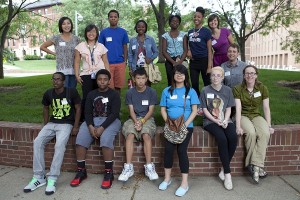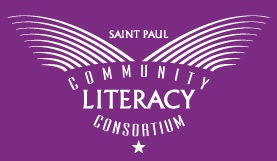 Earlier this month, Curriculum and Instruction Assistant Professor Cassie Scharber and Angel Pazurek presented the keynote at the St. Paul Community Literacy Consortium’s (SPCLC) annual fall meeting for literacy professionals working in Adult Basic Education programs.
Earlier this month, Curriculum and Instruction Assistant Professor Cassie Scharber and Angel Pazurek presented the keynote at the St. Paul Community Literacy Consortium’s (SPCLC) annual fall meeting for literacy professionals working in Adult Basic Education programs.
The title of the keynote was “Technology and the Shifting Definition of Literacy: New Directions for Education,” and it engaged literacy professionals in conversations relating to preparing adult learners with digital literacy skills. Technology integration was discussed as a means to amplify possibilities for learners to connect, collaborate, and create. Scharber and Pazurek also discussed the community and culture shift associated with teaching with technology, including opportunities, barriers, and the ontological changes in learning spaces that impact the roles of both learners and facilitators.
New book on intimate relationships reveals surprising results
How much do you really know about your partner? How much do you want them to know about you? The answers to these questions are often surprising, according to two University of Minnesota researchers who recently published a new book, Knowing and Not Knowing in Intimate Relationships.
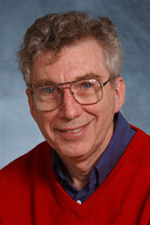 “Many of the people we talked to revealed that they hungered to be known and yet kept secrets from their partner,” said Paul Rosenblatt, professor emeritus of family social science. “Some hid past relationships or that they had an affair, while others hid issues of money, addiction, health, or personal failures.”
“Many of the people we talked to revealed that they hungered to be known and yet kept secrets from their partner,” said Paul Rosenblatt, professor emeritus of family social science. “Some hid past relationships or that they had an affair, while others hid issues of money, addiction, health, or personal failures.”
Rosenblatt, and co-author Elizabeth Wieling, an associate professor of family social science at the U, based their findings on intensive interviews with 37 adults.
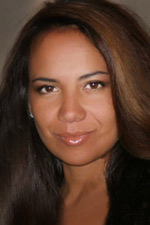 “This book shows that knowing and not knowing are central to couple relationships,” said Wieling. “They’re entangled in love, sexual attraction, trust, commitment, caring, empathy, decision making, conflict, and many other aspects of couple life. Often the entanglement is paradoxical. For example, a person saying she wants to be known very, very well, and yet keeping some things hidden from a partner.”
“This book shows that knowing and not knowing are central to couple relationships,” said Wieling. “They’re entangled in love, sexual attraction, trust, commitment, caring, empathy, decision making, conflict, and many other aspects of couple life. Often the entanglement is paradoxical. For example, a person saying she wants to be known very, very well, and yet keeping some things hidden from a partner.”
The researchers also found that many partners investigate their significant others in the early stages of a relationship — from talking to family and friends of the person they’re interested in to snooping on cell phones, going through drawers, or even talking to the partner’s minister.
“Trust is a huge issue in relationships and must be present,” said Rosenblatt. “We found that some people never recovered from a break in that trust, which had a major effect on the relationship. On the other hand, some relationships survived and even became stronger after major violations of trust.”
The researchers did find differences between men and women, as well as between age groups.
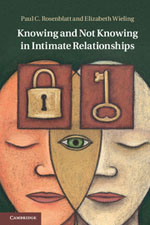 “Many young women struggled with what’s expected of them versus what they needed to be in an intimate relationship,” said Wieling. “While women wanted shared meaning and experiences with their partner to feel intimate, some men indicated that sex was the main factor for a feeling of intimacy.”
“Many young women struggled with what’s expected of them versus what they needed to be in an intimate relationship,” said Wieling. “While women wanted shared meaning and experiences with their partner to feel intimate, some men indicated that sex was the main factor for a feeling of intimacy.”
“Of the older people we interviewed, many reported that knowing everything about their partner was not of paramount importance,” added Rosenblatt. “We heard that more often among younger people, which may be a sign of the times or a sign of what goes on in earlier stages of relationships.”
Renewed focus on U teen sleep studies after Sec. Duncan’s comments
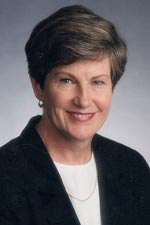 Ground-breaking teens and sleep research at the University, led by Kyla Wahlstrom, director of the Center for Applied Research and Educational Improvement, has received renewed attention following comments recently by Secretary of Education Arne Duncan. He suggested that high schools nationwide should consider the research on teens and sleep in relation to making decisions about school start times.
Ground-breaking teens and sleep research at the University, led by Kyla Wahlstrom, director of the Center for Applied Research and Educational Improvement, has received renewed attention following comments recently by Secretary of Education Arne Duncan. He suggested that high schools nationwide should consider the research on teens and sleep in relation to making decisions about school start times.
Twenty years ago Wahlstrom’s research about teen sleep began changing school start times in Minnesota. Now it’s become a national movement. The timing for this renewed interest coincides with the first national conference on teens and sleep in Minneapolis, Oct. 3-4, bringing experts from around the country to discuss current findings on teens and sleep and to translate them to create better school performance, improved physical and mental health, and reduced risky choices among teens.
See Wahlstrom’s appearance on KARE 11:
Continue reading “Renewed focus on U teen sleep studies after Sec. Duncan’s comments”
Lewis named co-editor of Expanding Literacies in Education Series
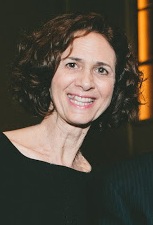 Cynthia Lewis, Emma Birkmaier Professor in Educational Leadership, has been named a co-editor for the Expanding Literacies in Education Series, published by the Routledge, Taylor and Francis Group.
Cynthia Lewis, Emma Birkmaier Professor in Educational Leadership, has been named a co-editor for the Expanding Literacies in Education Series, published by the Routledge, Taylor and Francis Group.
From the Routledge, Taylor and Francis Group: The Expanding Literacies in Education Series features books that highlight the changing landscape and explore new directions and theoretical tools in literacy studies as it is transforming education–including material, embodied, affective, and global emphases; digital and virtual worlds; and transcultural and cosmopolitan spaces. Some books in the series locate emerging literacies in practices that extend or trouble their historical uses and functions. Others cross disciplinary borders, bringing new epistemologies to bear on evolving practices that question the very foundations of literacy scholarship. Polemical and forward-looking, encompassing public and vernacular pedagogies as well as formal education, these books engage researchers, graduate students, and teacher educators with new and emerging theoretical approaches to literacy practices in all of their complexities, challenges, and possibilities.
Lewis has also recently been appointed to the editorial board of Research in the Teaching of English, the research journal for the National Council of Teachers of English. Research in the Teaching of English (RTE) is a multidisciplinary journal composed of original research and scholarly essays on the relationships between language teaching and learning at all levels, preschool through adult.
To follow the Expanding Literacies in Education Series, bookmark the series’ webpage.
Saving students money: CEHD’s open textbook catalog featured on KARE 11
“We’ve been trying to get faculty to understand that open textbooks exist, and they’re out there, and they can be freely distributed, and they’re quality textbooks just like the textbooks they already use,” said David Ernst, academic technology director for the College of Education and Human Development. He was interviewed recently by KARE 11 for a story on how “Open textbooks could mean more money for college students.”
Ernst, who led the development of the college’s open textbook catalog, also explains how open licensing works and how easy it is to find more than 140 open textbooks that faculty can adapt and use for their courses.
“And these textbooks tend to be for high enrollment courses, where the impact would be huge — introductory courses that freshmen take, that thousands of students here at the University take,” said Ernst.
See the KARE 11 story below. Also see Ernst’s KSTP interview about use of educational technology in teaching and learning.
Continue reading “Saving students money: CEHD’s open textbook catalog featured on KARE 11”
CEHD researcher explores why early math errors persist
 Students in 2nd and 3rd grade who have whole number misconceptions — such as claiming 23 is the largest two-digit number when the correct answer is 99 — are more likely to make uncommon computational errors as late as the 8th grade.
Students in 2nd and 3rd grade who have whole number misconceptions — such as claiming 23 is the largest two-digit number when the correct answer is 99 — are more likely to make uncommon computational errors as late as the 8th grade.
This is the result of a longitudinal study, published recently in the journal Frontiers in Psychology, led by Michele Mazzocco, Institute of Child Development professor and research director for the Center for Early Education and Development.
In the study, 224 2nd and 3rd graders’ were asked to report the smallest and largest single digit, two-digit and three-digit numbers. After each answer, the students were asked if they were sure of their answer.
Two hundred of the 224 answered correctly that 9 is the largest single digit number while 180 knew that 99 was the largest two-digit number. Only 87 were able to identify 999 as the largest three-digit number. It’s important to note that these results reflect typical developments in learning about multi-digit numbers among these age groups.
“The fact that many 2nd graders didn’t know the largest three digit number is not particularly informative, said Mazzocco. “However, of the students who gave an incorrect response, what we looked at was the number they gave. For instance, if a student responded that 900 is the largest three-digit number — although it’s incorrect, the answer is logical. More importantly, 900 is a common error made by 2nd and 3rd graders answering this question. When a student gave an illogical, infrequent response, such as 236 or 653, that student may not only have incomplete place value concepts but may also lack a solid understanding of one-digit whole numbers, such as 6, 5 and 3.”
For students who made these uncommon errors in 2nd and 3rd grades, the study found that the lack of number knowledge predicted specific types of place value errors made, by the same children, on math assessments at grade 8. It also showed that young students who have early whole number misconceptions go on to have slower and less accurate performance and persistent, atypical computational errors in later school years.
“This research suggests that specific qualitative assessments of symbolic number knowledge in early grades may reveal more about children’s thinking about numbers than does a typical ‘pass or fail’ test. This in turn may reveal which students are most at risk for persistent poor math outcomes in future years,” said Mazzocco.
Classifying students with mathematics learning disability (MLD, or dyscalculia) is typically based on composite scores from broad measures of math achievement, according to Mazzocco. These scores may predict later math achievement levels but do not specify the nature of math difficulties likely to emerge among students at greatest risk for long-term failure in math.
“One of our goals with the study was to help define what poor number concepts might look like in early childhood and to help teachers identify which students have not developed a good number sense early on,” said Mazzocco.
Early response to the study from educators and researchers has generated interest in more qualitative research on identifying MLD in young children, Mazzocco said.
“Number misconceptions are fairly typical in very young children, and they are not always cause for alarm. Our current work is designed to focus on which number concept errors in preschool predict persistent number misconceptions throughout school, and our next steps are to study how early misconceptions alter the path of early mathematics learning,” added Mazzocco.
See more in this Minnesota Public Radio story.
EDRC kicks off Year Two of “Supershops” for University Supervisors
Bob Utke, EDRC’s Clinical Learning Coordinator, welcomed all CEHD supervisors back on August 30th with the first of a intentional series of workshops to support supervisor, teacher candidate, and school partner needs in 2013-14. The workshop series is planned as follows:
August 30, 2013 — Orientation to role
Sept 6, 2013 – Observation and documentation
Sept 13, 2013 – Mentoring performance
November 1, 2013 – Supervisory dilemmas
January 10, 2014 – Coaching practice
February 7, 2014 – edTPA review
March 7, 2014 – Final evaluation, recommendations, and career services
CEHD Alumni Society welcomes new board members
The CEHD Alumni Society welcomes new board members Paul Amla (M.Ed. ’07 human resource development), Simone Gbolo (M.Ed. ’12 youth development leadership, P.B.C .’12 undergraduate multicultural teaching and learning), Mark Groves (A.A. ’83 General College, B.A. ’90 child psychology), Candice Nadler (M.Ed. ’82 early childhood education), and Jan Ormasa (M.A. ’74 educational psychology).
Since 1956, the CEHD Alumni Society has created lifelong connections with over 70,000 alumni and friends of the college, enhanced the student experience, and advocated for the college and University. To learn more, please visit cehd.umn.edu/alumni.
Misty Sato begins Sabbatical
Misty Sato, EDRC Executive Director, TERI Program Director, and principal investigator, begins a well-deserved one year sabbatical. The EDRC team will be in good hands with the leadership of both Martha Bigelow (Associate Professor & Interim Executive Director) and Deborah Dillon (Associate Dean for Graduate, Professional, and International Programs & co-principal investigator). Stacy Ernst will serve as Interim TERI Program Director & Partner Network Coordinator.
C&I’s Jeremy Johnson presents research at the San Diego Comic-Con
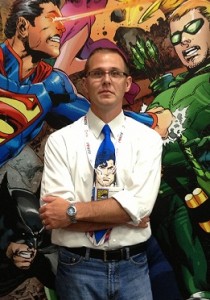 C&I’s researchers often travel the country and the world, visiting remote destinations to investigate issues and unique solutions to our most pressing challenges in education. This year, one Ph.D. student in the Art Education track, Jeremy Johnson, participated in a panel discussion at the San Diego Comic-Con, offering up findings on the potential of comics to increase student motivation and learning. We recently talked with Jeremy Johnson about his research and findings.
C&I’s researchers often travel the country and the world, visiting remote destinations to investigate issues and unique solutions to our most pressing challenges in education. This year, one Ph.D. student in the Art Education track, Jeremy Johnson, participated in a panel discussion at the San Diego Comic-Con, offering up findings on the potential of comics to increase student motivation and learning. We recently talked with Jeremy Johnson about his research and findings.
What fostered your passion for art education?
JJ: I was fortunate to have a fantastic art educator during middle and high school. He always encouraged his students to pursue their interests but also pushed us to reach our fullest potential. He helped me discover a passion for art. I initially went to college for a degree in graphic design and computer animation but after working as a graphic designer for a year, I realized that my calling was in the classroom, working with students.
What are you researching? Are there any preliminary findings you can share with us?
JJ: I spent five months earlier this year at a rural middle school in Western Wisconsin researching how the eighth grade reading and English teachers collaboratively designed an arts-based integrated Holocaust unit. The teachers taught the Holocaust by presenting survivor stories, having the students read non-fiction and realistic fiction novels and participating in a variety of other activities. This unit differed from previous years because instead of researching a Holocaust topic and writing a two page fact based report, the students were required to research a Holocaust topic and create a minimum six-page comic using the conventions of comics correctly. What made this unit unique is that comics were more than just the final project, they were built into the unit throughout so by the time the final project was assigned the students were familiar with terminology, how to design panels, draw figures and write a story.
At the beginning of the unit there was dread from some students while others became completely engaged and energized. One thing that stands out, now that I have begun to analyze all the information, is students who typically excelled or were labeled gifted and talented found themselves in a position that wasn’t comfortable to them; they struggled and therefore needed to put more time into their work. On the flip side, a group of students who previously struggled academically found this unit playing to their strengths: drawing and sharing stories.
For the first time all year, every student turned in the assignment on time, and many students admitted they developed a greater emotional connection to their topic because of the comic. Finally, the students presented their research-based comic at a community gathering. We were hoping to initially have about 200 parents, but that number swelled to over 400 attendants! Community members circulated through various classrooms viewing students’ projects and asking questions. It was well-received by students, parents and community members alike.
What gets you excited about your work? What really motivates you?
JJ: I am motivated by the prospect of promoting the idea of using comics as a valid instructional technique in classrooms. After seeing how many students in my research study were intrinsically motivated to produce high quality work, I think there is great potential for this in education and I want to share my ideas with other educators so that they can, in turn, share this with their students.
In what ways does the Department of Curriculum support you?
JJ: My department has been extremely supportive of my research. I have applied for the C&I travel grant the past two years, giving me the opportunity to travel to conferences to present my research and connect with a small group of other individuals interested in similar topics. The generosity of C&I has benefited my professional work immensely. I have been able to network with people in my field and have similar interests. The connections I have made have contributed and will continue to further improve my research and classroom instruction.
Tell us a little bit about you. What do you do in your free time?
JJ: My wife Lisa (currently a Ph.D. student in C&I’s Culture and Teaching track) and I live in Eau Claire, WI commuting daily to the University of Minnesota. At home we have five children: Nevaeh (8), McKail (6), Nadirah (4), McKellen (2) and Namarah (1). Much of our free time is spent doing activities together as family such as reading, doing art projects, gardening and volunteering at their school when possible.
When I do get some free time to myself I enjoy reading about comic theory aesthetics and my weekly stack of comics from the local comic book shop in Eau Claire.
For more information on Jeremy’s panel discussion, see the article, “Using Comics to Educate about the Holocaust,” and the Comic-Con Schedule.
C&I’s Yvonne Gentzler featured in Back to School article in Star Tribune.
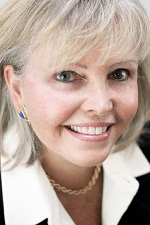 In households across the United States, it’s time to start talking about the inevitable wind down of summer and the return to school. For many children and teenagers, the start of a new school year can be a time of transition and uncertainty. In “How to soothe school anxiety,” a new article in the Star Tribune prepping parents for some of the fears kids experience as school approaches, Department of Curriculum and Instruction Associate Professor Yvonne Gentzler offers input on strategies for supporting kids in this time of anticipation.
In households across the United States, it’s time to start talking about the inevitable wind down of summer and the return to school. For many children and teenagers, the start of a new school year can be a time of transition and uncertainty. In “How to soothe school anxiety,” a new article in the Star Tribune prepping parents for some of the fears kids experience as school approaches, Department of Curriculum and Instruction Associate Professor Yvonne Gentzler offers input on strategies for supporting kids in this time of anticipation.
Read the full article at the Star Tribune.
New Ranking for CSPP announced in the US News and World Report
The rankings for 2013 from the US News and World Report puts the Counseling and Student Personnel Program in the Department of Educational Psychology at 4th for graduate programs in student counseling and personnel services in colleges of education.
Romano presents at the American Psychological Association (APA) Convention

John Romano attended the American Psychological Association (APA) Convention where he participated in programs highlighting the “Guidelines for Prevention in Psychology”. Romano chaired the Task Group that wrote the guidelines, which were approved by the APA Council after a multi-year process. CEHD is home for the interdisciplinary U of M graduate minor in Prevention Science.
Kick off Year Three of Co-teaching Professional Development with Partner Districts
New this year! Thanks to the generosity of our school partners and co-teaching pairs last year, we were able to collect footage from most partner districts of co-teaching in a variety of classrooms last Spring– from 2nd graders at St. Anthony Park to a newcomers class at Wellstone.
Once editing is completed, we’ll be adding video of University of Minnesota teacher candidates and cooperating teachers in the Partner Network schools to our enhance the online modules.
Workshops held so far in 2013-14:
When we aren’t able to provide the co-teaching professional development at your school site, remember that the Foundations and Pairs are available to our colleagues in partner districts and our students as online modules:
Foundations Workshop
Pairs Workshop
Mentor Training offered for all District Partners and University Colleagues (TERI and TC2)
The June Induction forum was followed up with a two-day Mentor Training in August where the partner university placement coordinators and partner district induction leads learned mentor skills and tools to support their induction goal. Each institution is training cooperating teachers, university supervisors and district new teacher mentors in these skills and tools so there is better alignment across the bridge of support and consistent mentoring for our newest teachers.
Research proves that two years of regular one-on-one mentoring of a new teacher can impact student achievement. The bridge of supporting our teacher candidates with mentoring by cooperating teachers/supervisors into induction mentoring during the first year of teaching allows for two years of regular one-on-one mentoring. TERI is excited to continue to support their induction goal of implementing deep level mentor training to university supervisors this school year.
Alumni profile: Craig Seibert, M.Ed. in Science Education
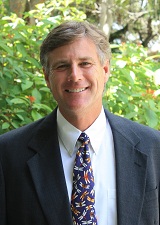 This month, we had the chance to catch up with C&I Alum, Craig Seibert, a science educational consultant and recently-elected Board President for the Friends of Rookery Bay in Naples, Florida. Craig earned his M.Ed. in Science Education at the University of Minnesota in 1984, and taught high school science for 21 years. In 1996, he was selected as the Outstanding High School Teacher of the Year for Collier County. From 1999 to 2006, he served as the science coordinator for Collier County Public Schools in Naples, FL.
This month, we had the chance to catch up with C&I Alum, Craig Seibert, a science educational consultant and recently-elected Board President for the Friends of Rookery Bay in Naples, Florida. Craig earned his M.Ed. in Science Education at the University of Minnesota in 1984, and taught high school science for 21 years. In 1996, he was selected as the Outstanding High School Teacher of the Year for Collier County. From 1999 to 2006, he served as the science coordinator for Collier County Public Schools in Naples, FL.
In his new role as the Board President of the Friends of Rookery Bay, Craig will work to build support for the Rookery Bay National Estuarine Research Reserve, one of 28 research reserves across the United States. Below, Craig answers a few questions for us.
Tell us a little bit about you. What do you do in your free time?
I was a high school science teacher for 21 years (1 year in Sherburn, MN, 6 years in Spring Lake Park, MN and 14 years in Naples, FL), and after that I became the Science Coordinator for Collier County Public Schools in Naples. I’m currently a science educational consultant. Education has always been my passion and I enjoy teaching students and teachers alike.
In my free time, I enjoy traveling with my wife of 32 years, golfing, and spending summers at our lake home on Ten Mile Lake near Hackensack, MN and wintering in Naples.
What gets you excited about your work? What really motivates you?
I am currently involved with developing inquiry-based science programs for Pre-K through 5th grade. Our children are our future and we need to help prepare them to be critical thinkers. We need to challenge our youth to compete with the rest of the world and provide them the tools to keep the United States competitive whether that be in education, research, industry or any other field in the market place.
I think my passion for teaching came from some of the great teachers I had as I was going through our educational system. There is nothing more rewarding than seeing a student understand a concept or seeing that light come on and knowing you had a small part in their understanding. It was fun to see students grow right in front of you over the years. A teacher has an awesome responsibility to help mold a student’s learning. We as a nation need to see that value and reward those teachers for the hard work they put in every day.
How does your degree come in handy? How has it prepared you for your career both in and outside the classroom?
I believe my master’s degree opened doors for me after I left the classroom to become a science coordinator for our school system. My degree also helped open doors in the consulting world once I retired from the public school system. There is no doubt that the University of Minnesota M.Ed. has been extremely helpful throughout my career.
What you will be doing in your new position?
As the incoming President of the Friends of Rookery Bay (FORB), I will be charged with helping the National Research Reserve move forward to protect our precious estuaries found in Southwest Florida. The FORB group’s mission is to connect people with Southwest Florida’s dynamic estuarine environment through education, engagement, and stewardship by supporting the Rookery Bay National Estuarine Research Reserve.
Do you have a motto or a set of words to live by?
“There are no short cuts to success,” and “treat others as you would like to be treated.”
Teen Tech leaders gather at LTML
Teen Tech leaders from around the Twin Cities gathered at Learning Technologies Media Lab on Thursday, July 25, to meet each other, share work and ideas, play with Flipgrid, and hang out with LTML developers. Co-sponsored by the LT Media Lab and the Emma Birkmaier Professorship in Educational Leadership, this event was organized by Maggie Struck, a Ph.D. student in Literacy Education in the Department of Curriculum and Instruction.
Participants included the Franklin Library’s Teen Tech Squad (Hennepin County Library), CreaTech from SPNN (St. Paul Neighborhood Network), and the Teen Tech Crew from the Science Museum of Minnesota and St. Paul Public Libraries.
Thanks to all who made this day spectacular. LTML is looking forward to future visits and collaborations.
20th annual Dream Ceremony honors first-generation college students
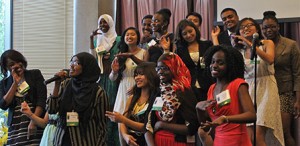 The 20th annual Dream Ceremony on July 19 honored 27 high school graduates in the TRiO Upward Bound program who are going to college this fall supported by Minnesota I Have a Dream Scholarships.
The 20th annual Dream Ceremony on July 19 honored 27 high school graduates in the TRiO Upward Bound program who are going to college this fall supported by Minnesota I Have a Dream Scholarships.
Also honored were 14 new grads of the U and five other Minnesota colleges who fulfilled the dream of becoming the first in their families to finish college. Dozens of Upward Bound students still in high school and Dream Scholars still in college also attended to be part of the milestone celebration. The event included student performances (see photo).
The Minnesota Dream Scholarship program was founded by Karen Sternal and her late husband, Bill Lahr, in collaboration with the U of M TRiO programs. TRiO is a federally supported initiative whose U of M presence is located in CEHD. More than 450 Dream scholarships have been awarded since 1991.
Read more in “Legacy of a dream,” a feature in CEHD Connect magazine, and on the TRiO website.
Umbreit named founding president of new national restorative justice association
 Mark Umbreit, professor and director of the School of Social Work’s Center for Restorative Justice & Peacemaking, was elected founding president of the new National Association for Community and Restorative Justice at the National Restorative Conference in Toledo, Ohio, on June 21. This new association includes practitioners and scholars from throughout the United States and will support the needs of members through annual conferences, technical assistance, training, and other resources.
Mark Umbreit, professor and director of the School of Social Work’s Center for Restorative Justice & Peacemaking, was elected founding president of the new National Association for Community and Restorative Justice at the National Restorative Conference in Toledo, Ohio, on June 21. This new association includes practitioners and scholars from throughout the United States and will support the needs of members through annual conferences, technical assistance, training, and other resources.
Iowa schools to use CEHD-developed early literacy and reading assessment tools
The University of Minnesota has signed an agreement with the Iowa Department of Education to provide universal screening and progress monitoring assessments for reading achievement from pre-kindergarten through grade six. As part of the agreement, two sets of assessment tools developed by U of M researchers, one for preschool programs and another for elementary grades, will be implemented by Iowa teachers statewide starting in the 2013-2014 academic school year.
These assessment tools will support the Department of Education’s statewide Response to Intervention (RtI) system, a process used for identifying the academic and behavioral supports that each student needs to be successful in school and to leave school ready for life. The process helps identify students who would benefit from more intensive evidence-based instruction and interventions matched to their needs, and monitors student progress to improve their educational systems.
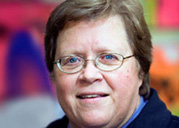 Jean Quam, dean of the U of M’s College of Education and Human Development, says that the U is uniquely positioned to provide this particular set of services for the state of Iowa.
Jean Quam, dean of the U of M’s College of Education and Human Development, says that the U is uniquely positioned to provide this particular set of services for the state of Iowa.
“For many years, the U of M has been leading the way in pre-K and elementary school assessment research and technology development,” said Quam. “We are excited to have the opportunity to partner with the state of Iowa and its educators through this agreement.”
Individual Growth and Development Indicators, or IGDIs, will be the preschool assessment tools to be implemented as part of the agreement. IGDIs are a set of brief measures of child language and early literacy, as well as web-based tools to help teachers monitor growth and development in preschool-aged children. IGDIs were developed by Educational Psychology Professor Scott McConnell and colleagues at the U of M’s Center for Early Education and Development.
The results of this research have been licensed to Early Learning Labs, a U of M startup company launched in 2012 to commercialize this work. Early Learning Labs includes these tools in their line of myIGDIs – a broader set of measures of preschool children’s development – and they will provide technical support for the project. To date, myIGDIs has been used in more than 11,000 school settings and has measured 180,000-plus preschool children across the United States.
 McConnell is pleased to see this broader application of a research-based technology. “We see these tools as part of a long line of research on academic measures at the U of M, going back to Stan Deno’s development of curriculum-based measures in the 1980s. These measures were designed to be both rigorous and easy to use, in ways we hoped would speed their application in real-world settings. As a result, it is terrific to see that broad application happening in Iowa.”
McConnell is pleased to see this broader application of a research-based technology. “We see these tools as part of a long line of research on academic measures at the U of M, going back to Stan Deno’s development of curriculum-based measures in the 1980s. These measures were designed to be both rigorous and easy to use, in ways we hoped would speed their application in real-world settings. As a result, it is terrific to see that broad application happening in Iowa.”
Formative Assessment System for Teachers, or FAST, will be the kindergarten to sixth grade assessment system for reading. FAST assessments are web-based tools designed for educators to screen, analyze and monitor student performance in reading, mathematics and social emotional domains. These assessments are the product of decades of research at the U in curriculum-based measurement and computer adaptive testing. In its four years, approximately 300,000 students have used FAST assessments. Iowa will implement Adaptive ReadingTM, earlyReadingTM, and CBM-ReadingTM as part of its state-wide RtI literacy initiative.
 As the director of FAST, Dr. Theodore Christ commented, “In addition to high quality technology-based assessments, a primary innovation of FAST is the online technology designed with teachers as the primary users. Assessments are often designed with little consideration to the needs and demands on teachers. We use technology and research to optimize the efficiency, acceptability and utility of teacher-friendly assessments.”
As the director of FAST, Dr. Theodore Christ commented, “In addition to high quality technology-based assessments, a primary innovation of FAST is the online technology designed with teachers as the primary users. Assessments are often designed with little consideration to the needs and demands on teachers. We use technology and research to optimize the efficiency, acceptability and utility of teacher-friendly assessments.”
As part of the agreement, myIGDIs and FAST will be used to assess all preschool through grade six students throughout Iowa’s 346 school districts. On-site training and technical support will also be provided as part of the three-year contract.
“The most important thing we can do for students in Iowa is to help them become proficient readers,” said Michelle Hosp, director of the Iowa Reading Research Center. “We know that the best way to solve reading problems is to prevent them, and schools must have a valid and reliable early warning system to identify students who are on track in reading as well as those who are not progressing adequately. We’re thrilled to provide these high-quality universal screening and progress monitoring assessments to Iowa schools through our partnership with the U of M.”
Learn more about Individual Growth and Development Indicators (myIGDIs).
Learn more about the Formative Assessment System for Teachers (FAST).
Read more on the U of M’s Office of Business Relations website.

